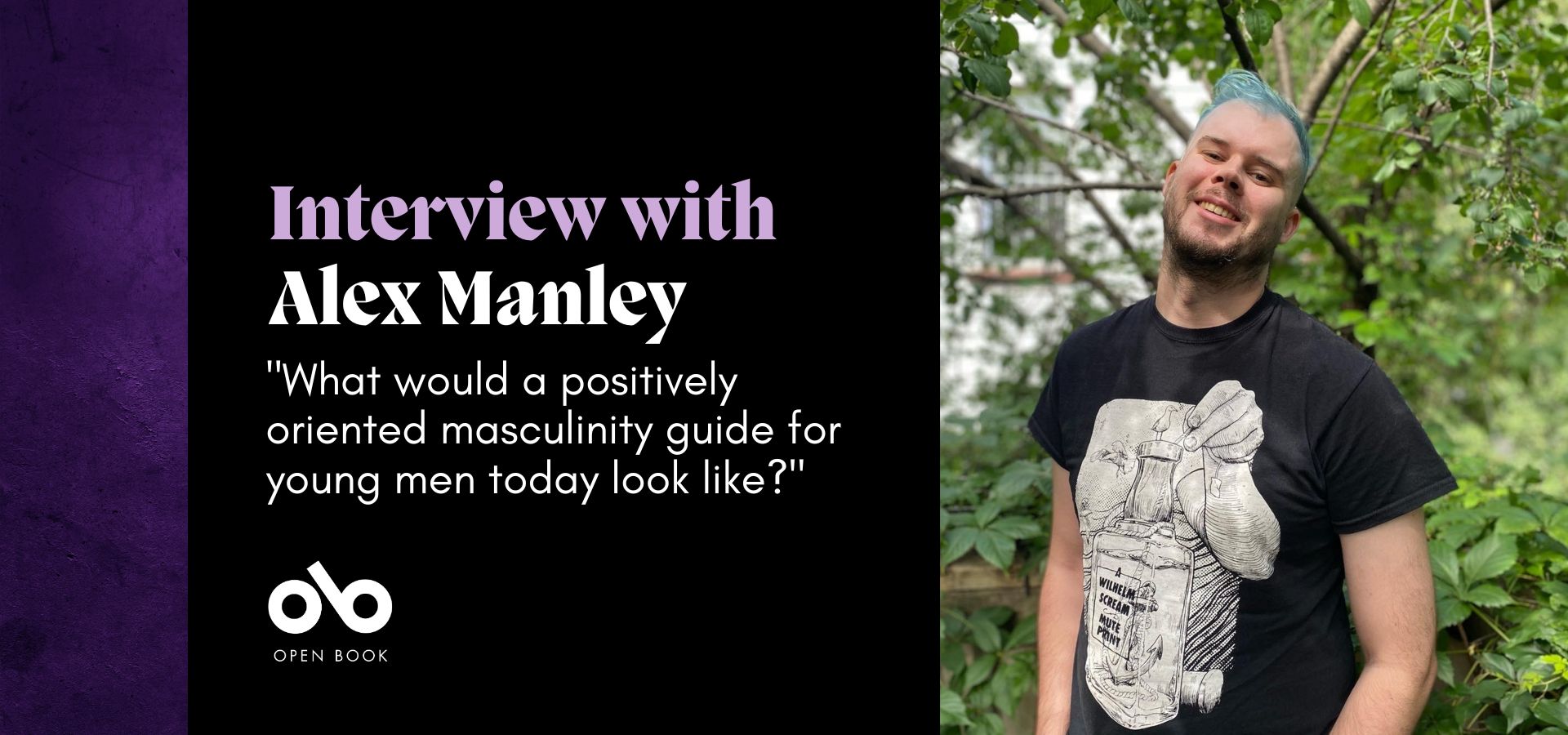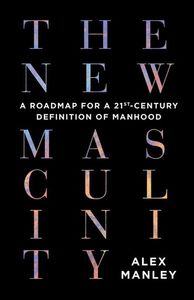Alex Manley Offers a Roadmap to Positive Masculinity in a Space Crowded by Toxic Internet Celebrities
In a world where misogynistic online celebrities curate massive followings, toxic masculinity continues to be detrimental to men and women, as well as young people. But as our collective idea of what it means to be a man shifts, men and particularly boys are sometimes lacking in clear, useful models and guidance about how to view and live masculinity in a positive way—a vacuum that can leave space for hateful influence.
As Senior Editor at AskMen, Alex Manley, an award-winning non-binary writer and translator, repeatedly encountered men searching for answers and struggling with feelings of anger, confusion, and loneliness. To combat the ubiquitous negative answers that can be all-too-easily found in those disorienting moments, Manley wrote The New Masculinity: A Roadmap for a 21st-Century Definition of Manhood (ECW Press), a smart, direct, empathetic guide that shows men a masculinity that is caring and fulfilling.
In a book that is as much about unlearning as learning, Manley carves out space for for men to allow their full selves to exist – a process that puts person before gender, and humanity before performance. Excellent for parents and caregivers looking to talk to sons as well as men of all ages, it's an essential read for a culture at a sometimes terrifying crossroads.
In our discussion with Alex today, as part of our True Story nonfiction series, they tell us about how their own experience of masculinity while growing up factored into the book's evolution, why it was important to not just talk about gender and social issues but actually include practical advice for men, and how The New Masculinity partly came about as a response to Jordan Peterson's popular, problematic writings on the same subject.
Open Book:
Tell us about your new book and how it came to be. What made you passionate about the subject matter you're exploring?
Alex Manley:
The short answer is probably that my last name is Manley.
The longer answer is that, for many reasons (name-related and otherwise), I’ve always had a fraught relationship to masculinity. Growing up, I never fit in with other boys, and people told me explicit and implicitly that I didn’t line up with their perceptions of what boys or young men should be like. I felt weird, stressed, and unsafe in all-male spaces, and over time, I found that I clicked much more easily with my female peers than my male ones.
In university, I wrote about gender a bunch of times for my student newspaper, and working for a men’s lifestyle publication after I graduated left me with no end of thoughts about gender and masculinity. But of course much of this would have faded away had not masculinity been a kind of perennial presence in and around the hot-button discussions it seems we’re always having—war, capitalism, climate crisis, gender violence, violence period.
OB:
Is there a question that is central to your book? And if so, is it the same question you were thinking about when you started writing or did it change during the writing process?
AM:
The central question of my book is, 'What would a positively oriented masculinity guide for young men today look like?'
Your CanLit News
Subscribe to Open Book’s newsletter to get local book events, literary content, writing tips, and more in your inbox
So much of the writing that I’ve encountered on masculinity is descriptive, not prescriptive. There’s a recognition that masculinity is in crisis, and a desire to identify the what and why, but it strikes me that not a lot of work is being done to give young guys today a clear, easy-to-follow blueprint for being the forward-thinking, progressive men of tomorrow.
Though it’s as much memoir and exploration of the facts on the ground as it is self-help, and I refrained from putting book-club-esque bullet-pointed action items at the end of each chapter, The New Masculinity is an attempt to be such a guide, to bridge the division between explicitly feminist or academic works—which might feel daunting to the average guy—and men who could benefit from the thoughts and ideas therein.
OB:
What was your research process like for this book? Did you encounter anything unexpected while you were researching?
AM:
Largely out of a desire to bring this book to market sooner rather than later, given my sense that the problem needed some form of response quickly, I restricted my research work to reading texts in the field, primarily ones that were relatively popular, published recently, or both.
A more comprehensive approach might have engaged in extensive interviews with young men today or significant trawling through the social media spaces they call their online homes. These tactics are useful and might have served the book well, but they are not my forte, and doing them justice would have required significantly more time and effort than I was able to put into the book. My hope is that someone else comes along with a similar book that makes use of more hands-on research in the not too distant future.
Until then, I’m hopeful that The New Masculinity, which blends together my personal experiences with masculinity, my learnings about it from close to a decade of working for AskMen.com, and the roughly 50 books on gender and masculinity I read as research, is a thoughtful, engaging and helpful resource for men and the people who care about them.
OB:
What do you need in order to write – in terms of space, food, rituals, writing instruments?
AM:
An idea too good to leave alone, and some time to flesh it out. Meaning, à la Woolf, a room of one’s own—preferably empty, and with a seating setup that allows me to put my back against the wall, so I know no one can see my laptop screen. And a financial arrangement that allows me to devote time to the low-financial-reward practice of writing without worrying about how I’ll pay rent.
OB:
Do you remember the first moment you began to consider writing this book? Was there an inciting incident that kicked off the process for you?
AM:
The idea for the book is at least five years old, and dates probably to around my first awareness of Jordan Peterson’s 12 Rules for Life and its success.
I wondered why there wasn’t a progressive, forward-thinking version of such a book, that spoke to the confusion and desire for guidance young men today were experiencing, without resorting to regressive platitudes and thinly veiled support for the white cis-hetero able-bodied and neurotypical status quo.
After that, a well-timed email from an editor who was looking for book ideas helped me get a better sense of the book’s potential, and a well-timed DM from Carly Watters, who became my agent not long thereafter, helped make the book a reality.
__________________________________________
A graduate of Concordia University’s creative writing program, Alex Manley is a Montreal-based editor, translator, and award-winning writer whose work has been published by AskMen, Hazlitt, The Walrus, Vulture, Catapult, Electric Literature, Maisonneuve magazine, THIS magazine, and the Literary Review of Canada, among others.






